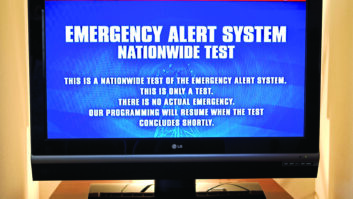SB 833 Will Standardize State’s Emergency Alert System
California bill will require protocols, training and more
A bill intended to standardize California’s emergency alert system is awaiting Gov. Jerry Brown’s approval. Last week, Senate Bill 833 was unanimously approved by both of the state’s legislative bodies.
Prior to the votes, lead sponsor and California Sen. Mike McGuire released a statement calling on his colleagues and the governor to take action. McGuire said SB 833 will “ensure statewide emergency alert standards are adopted, training for local emergency managers is implemented and we invest in a more proactive and effective mutual aid response system.”
[Read: New Changes in Store for EAS]
McGuire also noted the many firestorms plaguing the Golden State and the revelation that thousands of residents never received a warning, which he said was the impetus behind the legislation. “In the age of mega-fires, we need to have a universal emergency alert system in all 58 counties,” McGuire said.
The bill states: “It has become clear that multiple communication mediums and not just opt-in systems may be necessary to protect lives and save property.” Also, the legislation also states that they want “every tool be used to alert and warn all members of the public in the affected area” in the event of a disaster.
The statewide new protocols will be based on the Federal Emergency Management Agency’s Integrated Public Alert and Warning System but will be fleshed out by California’s Office of Emergency Services in consultation with telecom companies, the cable/broadband industry, broadcasters, the Standardized Emergency Management System Alert and Warning Specialist Committee and other stakeholders, according to the bill’s text.
These guidelines must be developed before July 1 of next year and will include timelines, best practices for alert deployment and training, chain of command, effective notifications and more.
SB 833 will also require annual training for emergency managers — provided within six months of the guide’s dissemination — and require that alerts be sent out via landline telephones and mobile phones, and be broadcast via radio, television and highway billboards.
The legislation also allows grant funding to be tied to compliance with these new emergency-alerting protocols.
According to the press release from McGuire’s office, “SB 833 is supported by the California Professional Firefighters, California Fire Chiefs Association, Rural County Representatives of California, the League of California Cities and many others.”
Sens. Bill Dodd and Jerry Hill and assemblymembers Cecilia Aguiar-Curry, Marc Levine and Jim Wood also helped to bring the legislation forward.





